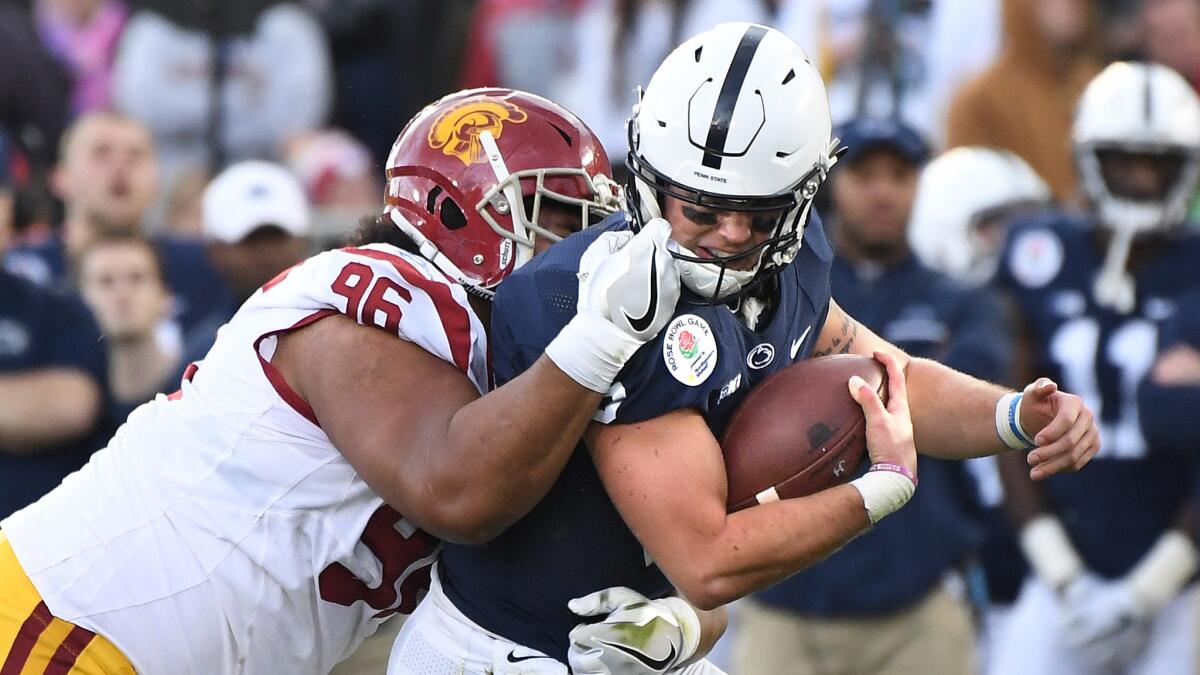College football’s targeting rule will remain unchanged next season

- Share via
NCAA leaders have decided not to tinker with college football’s much-debated targeting rule, opting to maintain the status quo for another season.
Last fall and winter, there was considerable talk about the consistency of penalties and ejections when players were hit around the head and shoulders.
The NCAA renewed the discussion this week during its annual rules committee meeting, which was also attended by competition officials and representatives from the NFL.
“We came to the conclusion we really think our rule is doing what we want — that is, changing player behavior,” said Bob Nielson, chairman of the rules committee and coach at the University of South Dakota.
With a stated focus on health and safety, some modifications were recommended.
The committee proposed that defensive players no longer be allowed to hurdle over the line of scrimmage on field-goal and point-after attempts. Currently, they may do so as long as they do not land on top of another player.
It was also recommended that the nameplate area of the jersey be included in horse-collar penalties and that players must wear knee pads or pants that cover the knee.
“We want players, parents and fans to know there is a commitment to safety,” said Ray Anderson, chairman of the Division I competition committee and athletic director at Arizona State University.
The proposals will be further discussed by a rules oversight panel in April.
In other matters, the rules committee addressed length of games by suggesting that officials be more aware of wasted seconds between plays and limiting halftime to the prescribed 20 minutes.
“Obviously, this is a complex issue,” Nielson said. “But the collaboration we had this week, including our television partners, will help us moving forward.”
Given that this is a non-rule-change year — no adjustments other than for safety — the committee said it plans to spend next fall gathering feedback on penalties for blocking below the waist and ineligible receivers.
Follow @LAtimesWharton on Twitter
More to Read
Go beyond the scoreboard
Get the latest on L.A.'s teams in the daily Sports Report newsletter.
You may occasionally receive promotional content from the Los Angeles Times.











